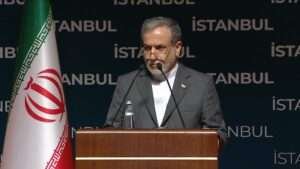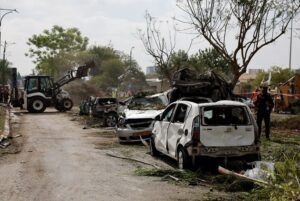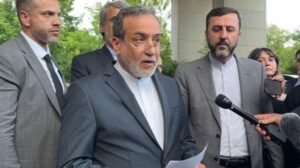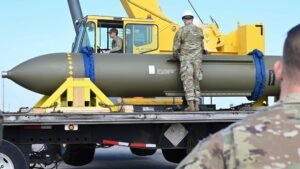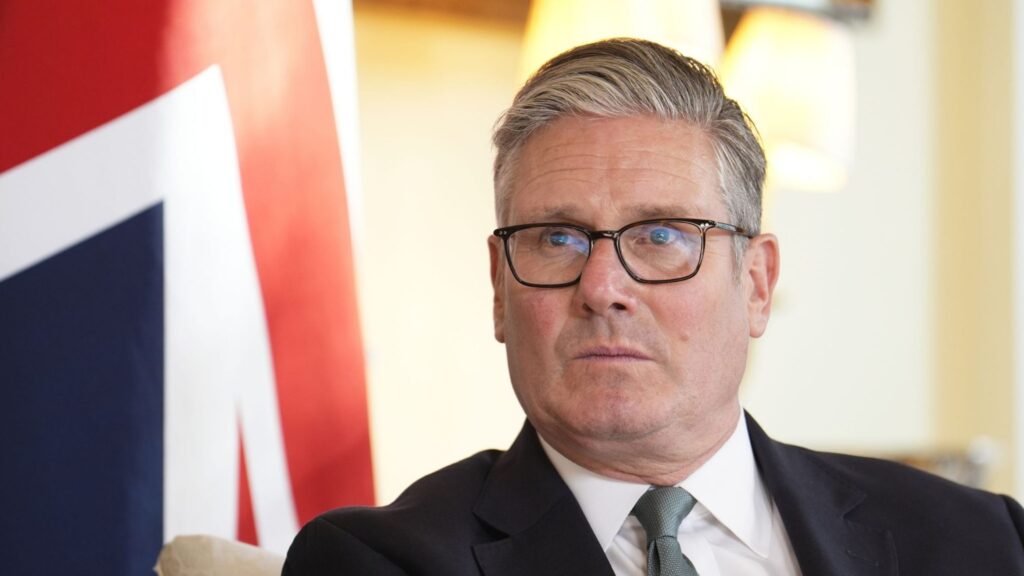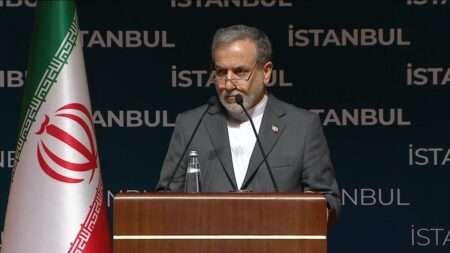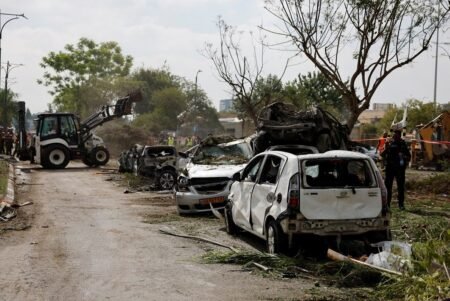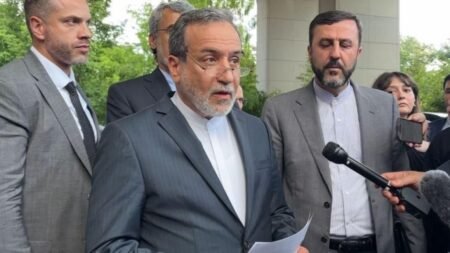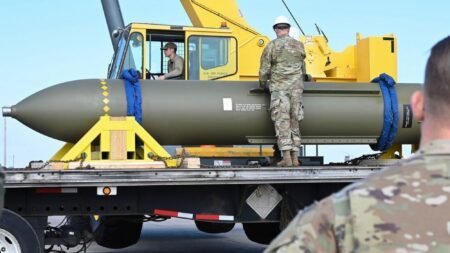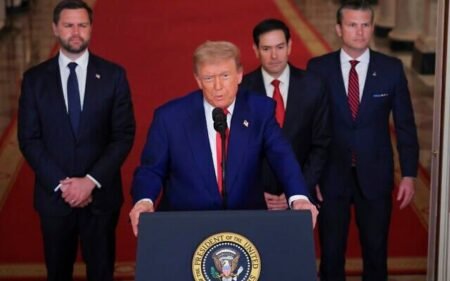Published by M10News Foreign Desk
© 2025 M10News.com | All rights reserved
LONDON – Prime Minister Sir Keir Starmer has urged Iran to return to the negotiating table and pursue a diplomatic path following U.S. airstrikes on three of the Islamic Republic’s nuclear facilities overnight.
In recent years, the geopolitical landscape in the Middle East has become increasingly complex. Various nations are vying for influence in the region, often leading to tensions that can escalate quickly.
This backdrop makes Prime Minister Sir Keir Starmer’s call for diplomacy even more critical. The importance of diplomatic engagement cannot be overstated, especially in light of the rapid developments surrounding Iran’s nuclear program.
In a formal statement released Saturday, Starmer described Iran’s nuclear ambitions as “a grave threat to international security” and said the United States “has taken action to alleviate that threat.”
Starmer’s emphasis on diplomacy reflects a broader understanding of the necessity for dialogue in international relations. For instance, past negotiations, such as the Iran Nuclear Deal (formally known as the Joint Comprehensive Plan of Action), showcased how diplomacy can yield significant results.
The deal effectively limited Iran’s nuclear capabilities in exchange for relief from economic sanctions. However, the withdrawal of the United States from this agreement under the previous administration has reignited concerns over Iran’s nuclear ambitions.
“The situation in the Middle East remains volatile, and stability in the region is a priority,” the prime minister said. “We call on Iran to return to the negotiating table and reach a diplomatic solution to end this crisis.”
The significance of maintaining stability in the Middle East cannot be highlighted enough. The region has faced numerous conflicts over the years, from the Gulf Wars to the Syrian Civil War, each impacting not just local populations but global politics and economies.
Sir Keir Starmer’s statement reflects a recognition that dialogue is essential in preventing further escalation and fostering long-term peace.
The remarks come amid heightened global tensions after President Donald Trump announced that U.S. forces had carried out successful precision strikes on key Iranian nuclear sites, including the fortified Fordow facility.
The U.S. airstrikes on Iranian facilities are indicative of the current high-stakes environment. Such actions can create a cycle of retaliation, further destabilising the region.
In this context, the UK’s stance, as articulated by Starmer, serves as a counterbalance to military actions, urging a return to negotiations. History has shown that military interventions often do not lead to lasting peace and can instead exacerbate conflicts.
Sky News reported that the UK was not involved in the military operation. British diplomatic sources say Starmer and Foreign Secretary David Lammy had consistently advocated a diplomatic resolution in the lead-up to the strikes.
Despite the risks associated with escalation, there are avenues for cooperation that could be explored. For example, regional powers and international organisations can engage in dialogue to address common concerns, such as security and economic stability.
Such collaborations can pave the way for a more secure Middle East, reducing the likelihood of conflicts that stem from misunderstandings or a lack of communication.
On Thursday, Sir Keir warned of a “real risk of escalation” if dialogue between Iran and the international community failed to materialise. His latest statement signals continued UK preference for a political solution, despite the unfolding military developments.
Furthermore, the role of public sentiment in diplomacy should not be overlooked. Citizens in many countries, including the UK, are increasingly aware of international issues and their implications.
Engaging them through transparent communication and education about foreign policy can bolster support for diplomatic efforts. Starmer’s approach could benefit from this engagement, ensuring that the public understands the significance of a diplomatic resolution.
Source: Official statement from Prime Minister Keir Starmer, reported via Sky News.
In conclusion, the situation in Iran requires careful navigation. The call for diplomacy by leaders like Prime Minister Sir Keir Starmer presents an opportunity to pursue peace and stability.
As the geopolitical environment continues to evolve, the commitment to dialogue will be essential in addressing the challenges posed by nuclear proliferation and regional conflicts.
© 2025 M10News.com | All rights reserved
Published in coordination with verified reporting from Sky News (UK). Continued analysis of the situation will be necessary as developments unfold, particularly regarding how diplomatic efforts are received by Iran and the international community.

